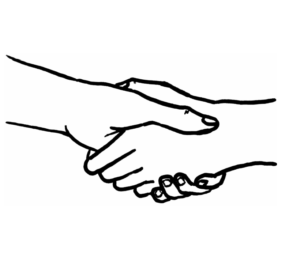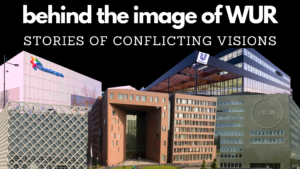 RUW and Otherwise organized several events and a research last year about the Impact of Collaboration. RUW has now released a report with the results of these activities. In it, they also make recommendations based on what people found important, and this with regard to Transparency, Decision Making (process and kind of companies for collaboration), Campus (physical presence of companies) and Influence (on research). Some of the proposed guidelines include
RUW and Otherwise organized several events and a research last year about the Impact of Collaboration. RUW has now released a report with the results of these activities. In it, they also make recommendations based on what people found important, and this with regard to Transparency, Decision Making (process and kind of companies for collaboration), Campus (physical presence of companies) and Influence (on research). Some of the proposed guidelines include
- Open public information on planned collaborations, with justifications, contract details and money flows. Easy accessible online information
- Shift: look at world’s problems and decide on companies that work on these problems instead of reacting to a demand.
- Work with local companies that engage in organic agriculture or sustainability instead of large destructive companies.
- Create opportunities for non-profits to enter these collaborations and/or find wats to enlarge the (intellectual) commons instead of privatized knowledge hubs.
- Establishing active channels of communication (not only website publishing) to communicate collaborations and engage in participatory decision-making process. (71%)
- Creation of guidelines with involvement of other actors than the Executive Board.
Read the full report here.
This report comes after an eventful year around the topic, and hopefully more reports, information and discussions will follow.
Last May, Food Watch brought out a new report about the lack of transparence of researchers of the WUR.
“In November 2020, Foodwatch investigated the transparency of the ancillary activities of associate professors of nutrition at Wageningen
University & Research (WUR). The study showed that 46% (11 of a total of 24) of the professors of food at Wageningen University & Research were insufficiently transparent: in November, not all or all of their work was publicly accessible on their university profile page. Six months after its first investigation, Food Watch once again investigated the transparency of the side activities of associate professors at Wageningen University & Research.
➢ Still today, 29% (seven of a total of 24) of the professors that specialize in nutrition at Wageningen University & Research are still
insufficiently transparent: their side activities are not (all) publicly accessible on their university profile page.
➢ Nearly one-third of the professors thus still violate the rules of conduct with respect to side activities: those of the Dutch Association of Universities in the Netherlands.
Transparency regarding side activities is particularly important for special professors, as their chair is funded by a third party. Without transparency, it is even more difficult to check or estimate whether there is any possible influence by external parties. Transparency is crucial to assess the extent to which scientific research and scientists are independent or, to a lesser or greater extent, represent the interests of industry. Several codes of conduct state transparency (about ancillary activities) is therefore central. Everyone should be able to ascertain whether there is a possible Everyone should be able to check whether there are any conflicts of interest, or at least be alert to them. The importance of transparency (about ancillary activities) is further elaborated in the previous elaborated in the previous report by Food Watch from November 2020.”
Read the full report here (in Dutch).
About a year ago, Boerengroep and RUW also organized a webinar, in which we discussed the conflicting images of the WUR, “Behind the image of the WUR”, with a researcher, a farmer and a student. We talked about the absence of other ways of farming, such as agroecology, the corporate image of the WUR and the lack of decolonization of the university.
Watch it here.


